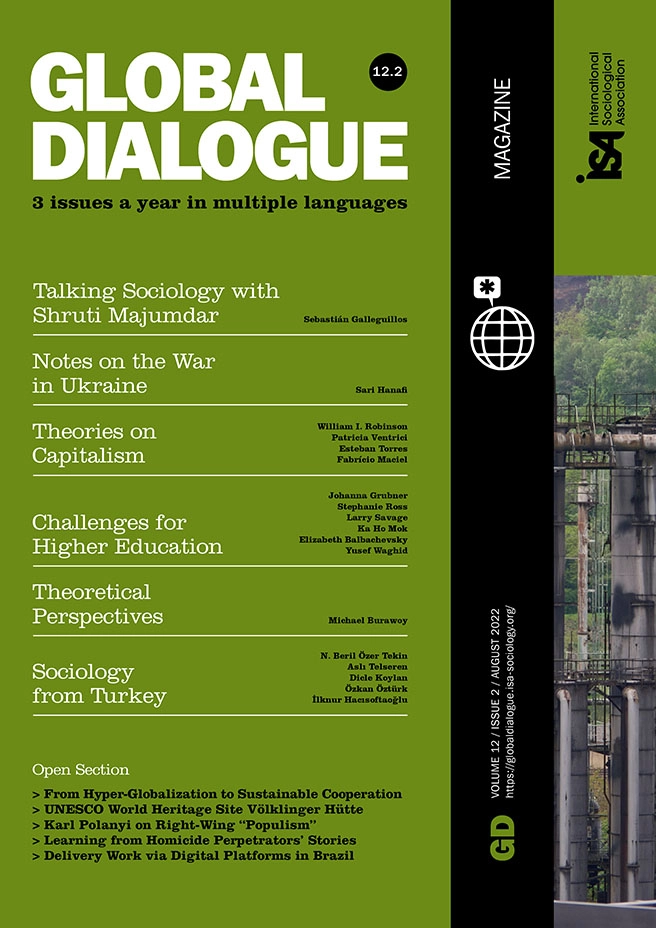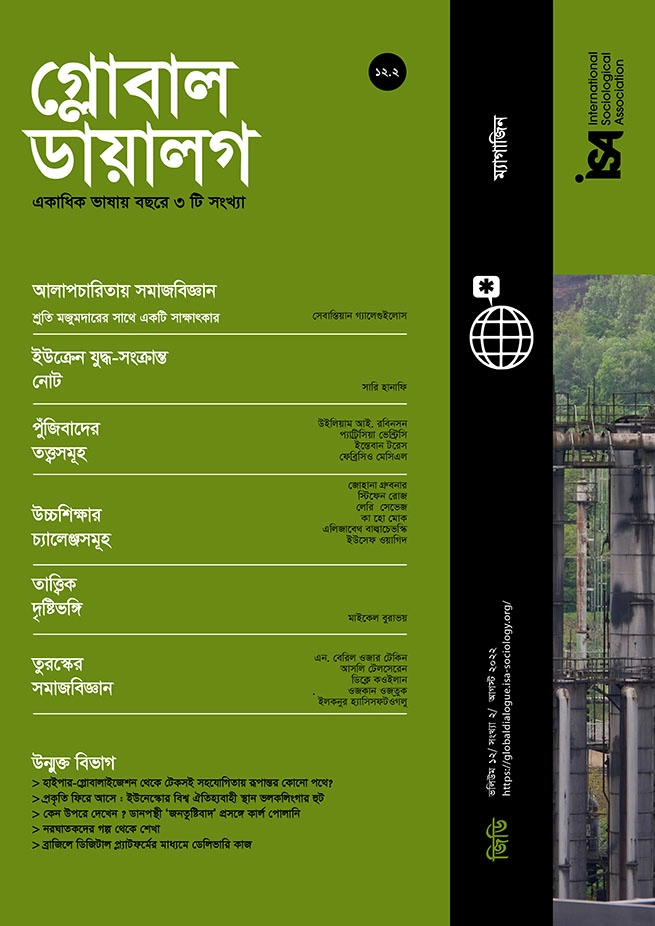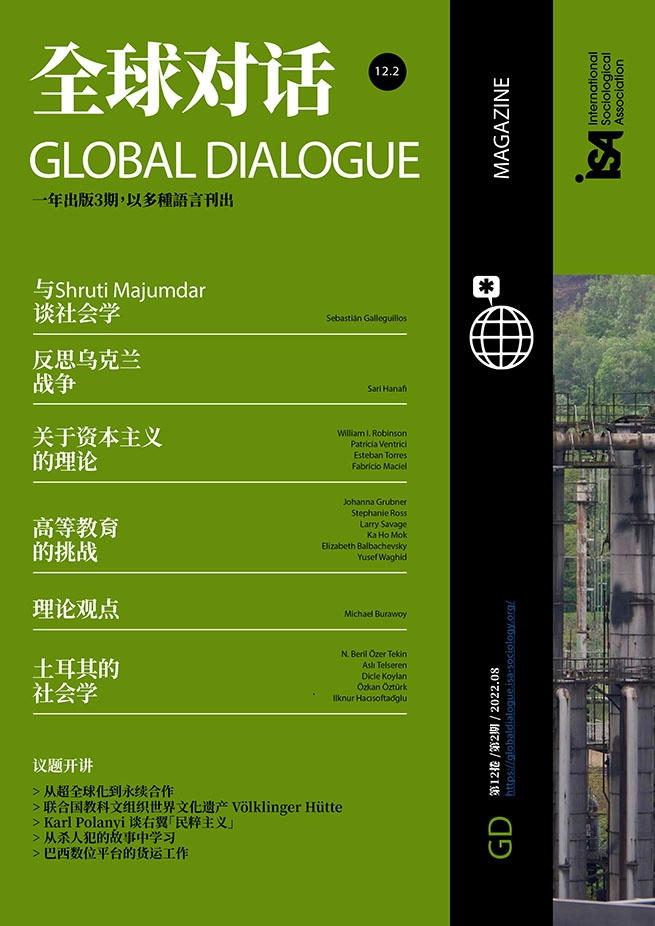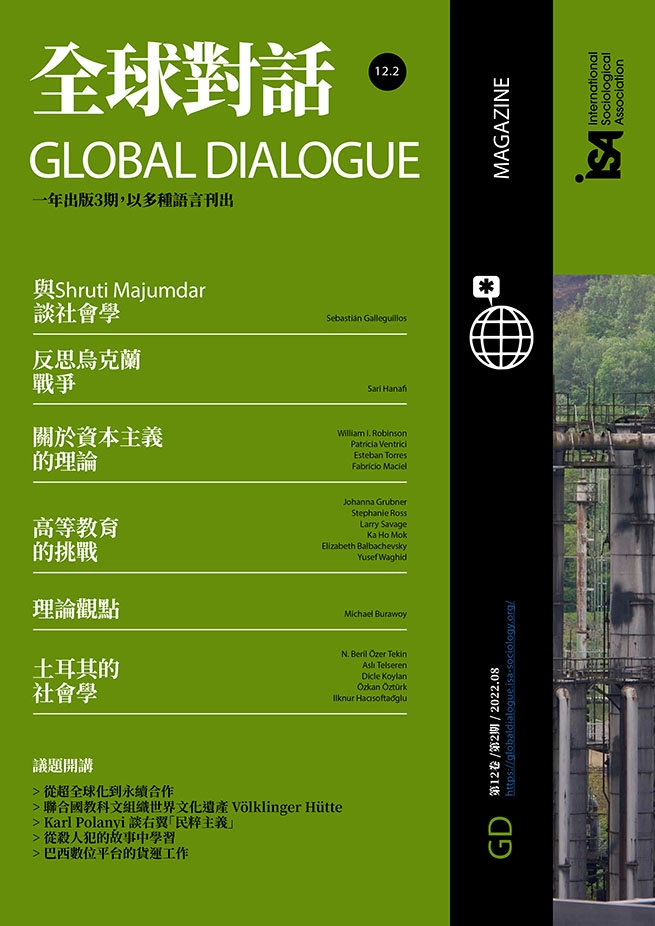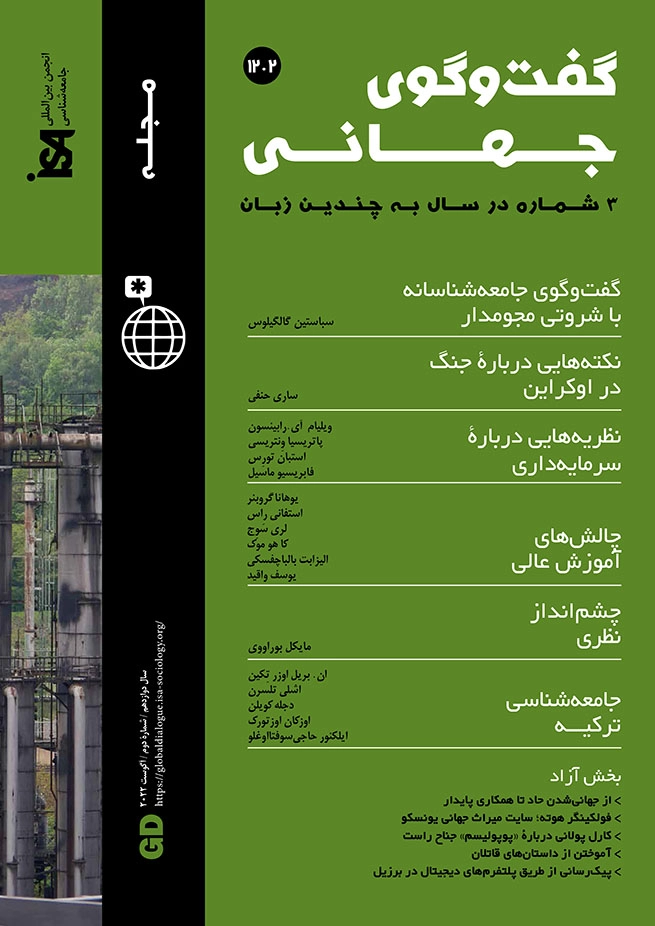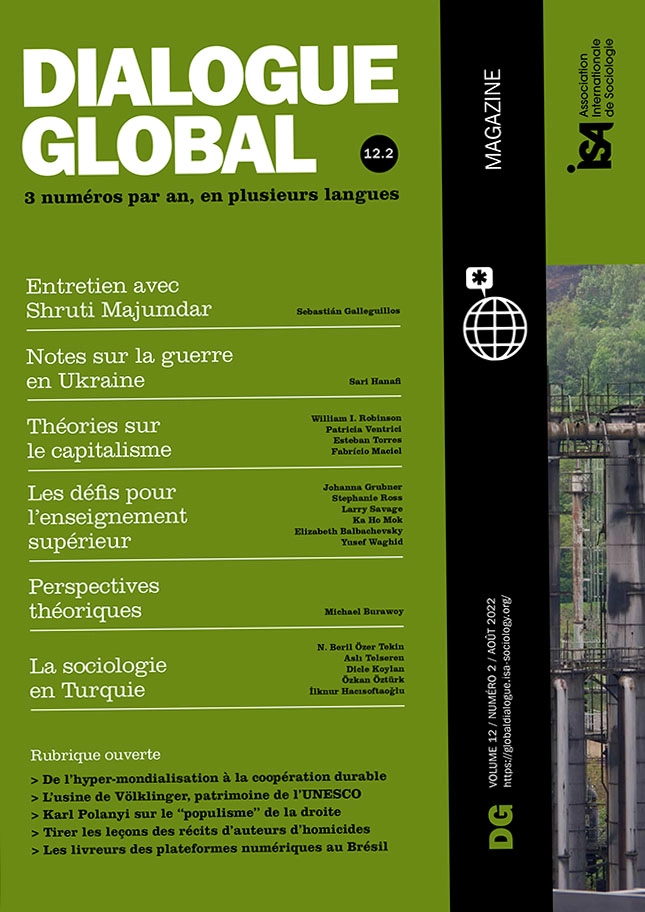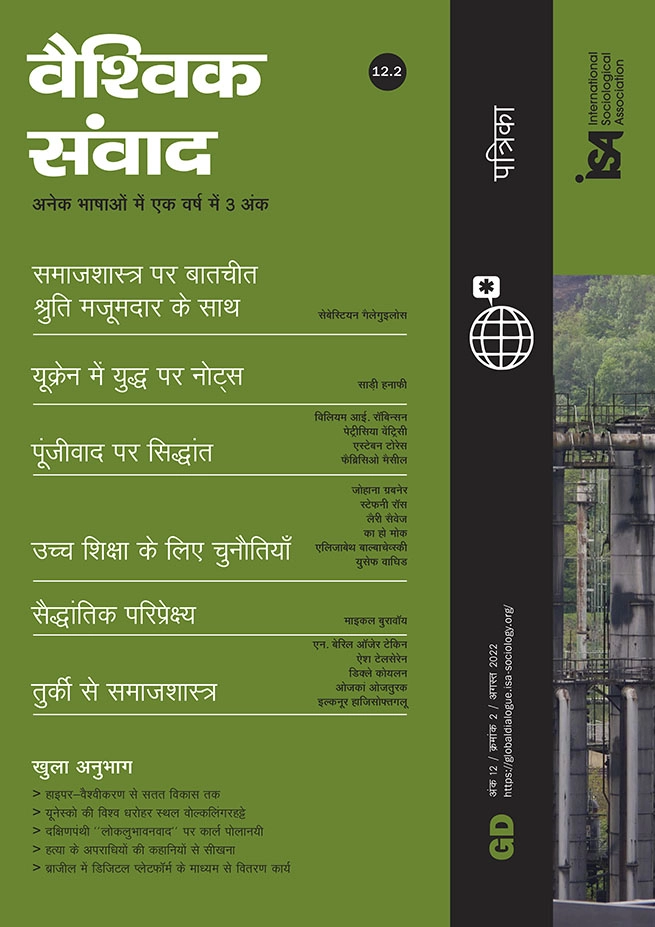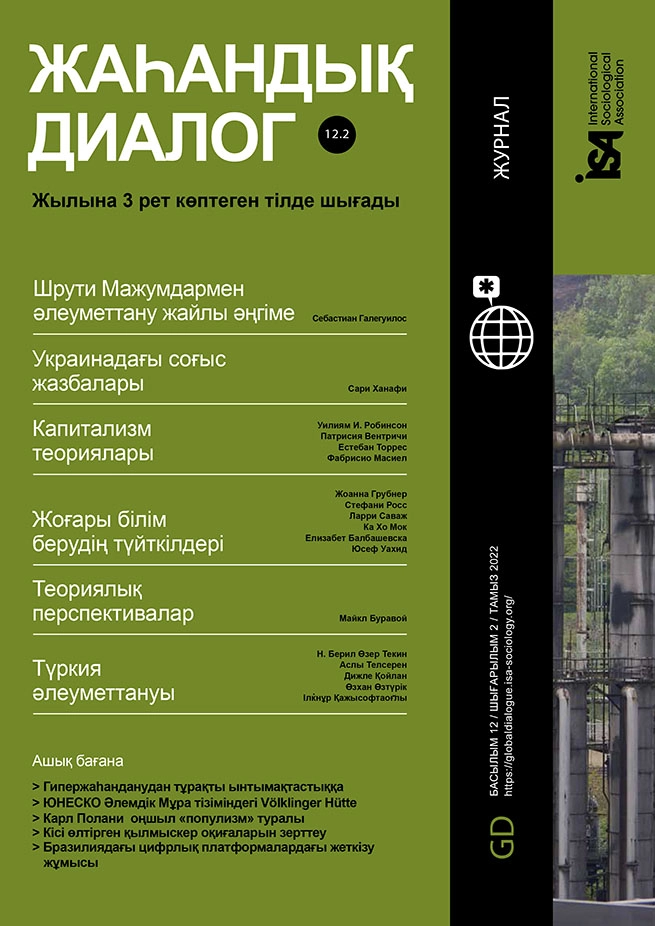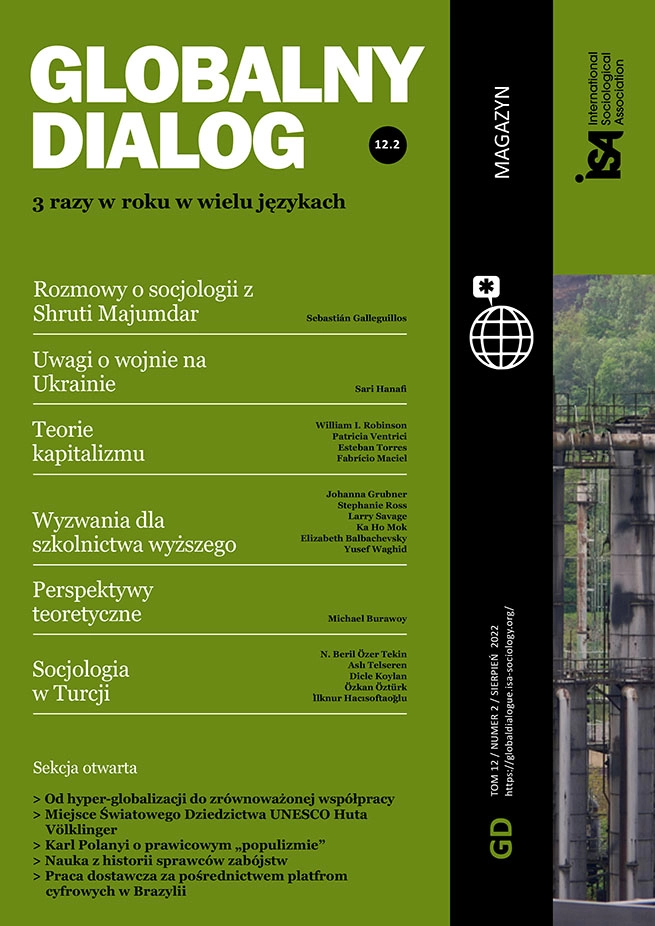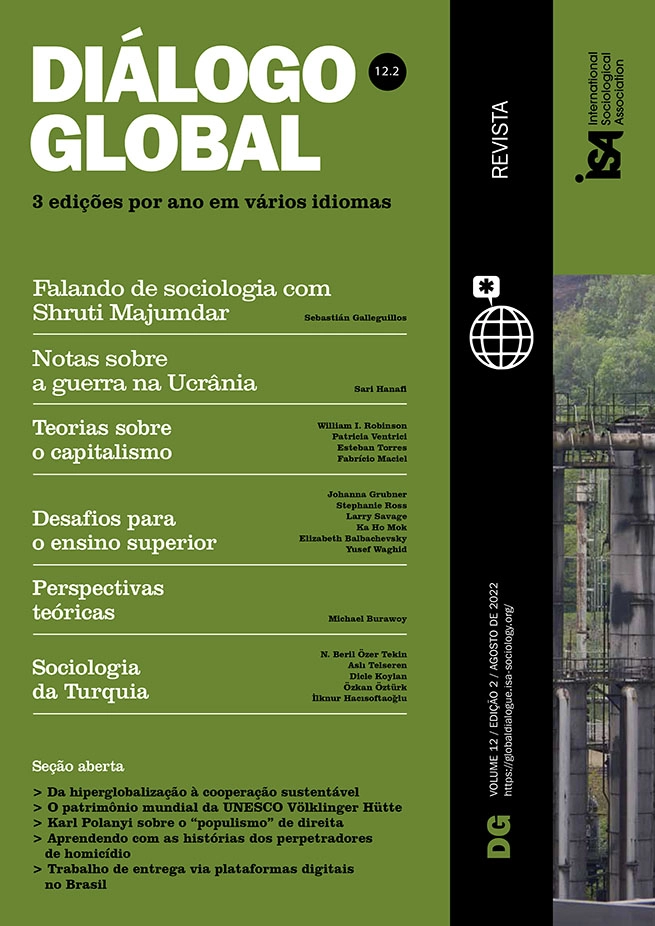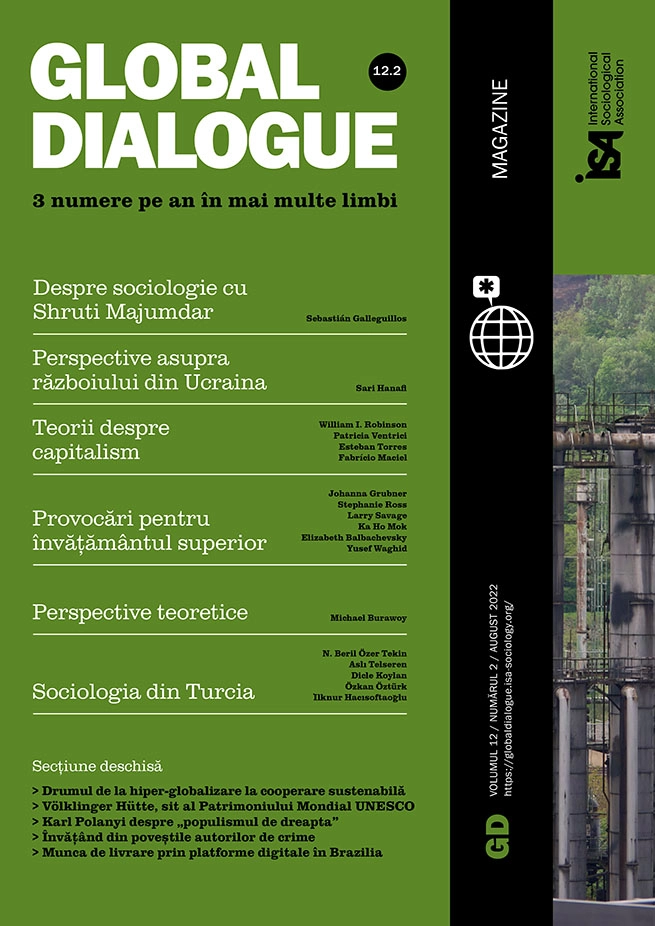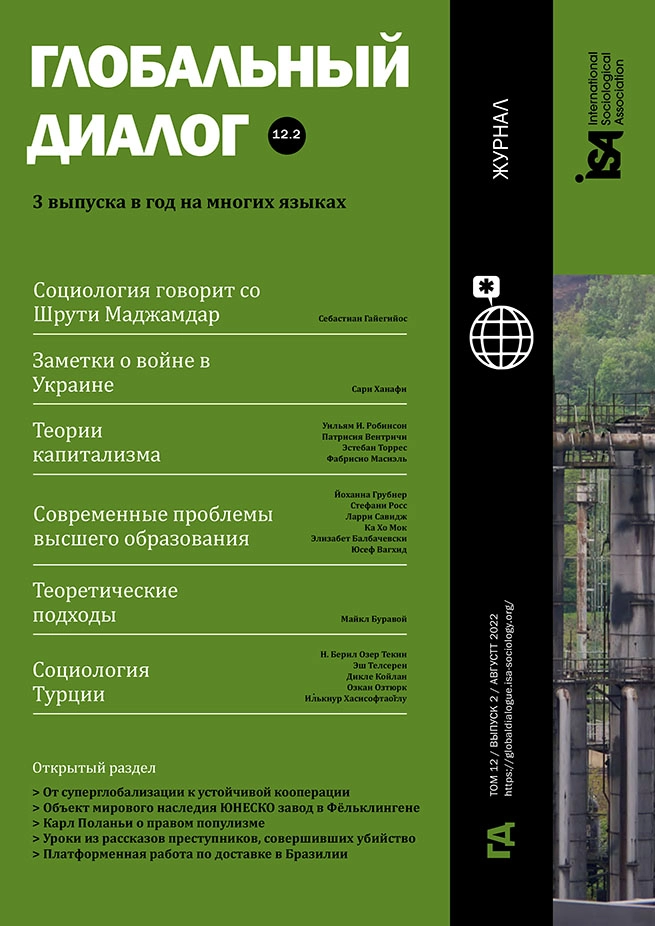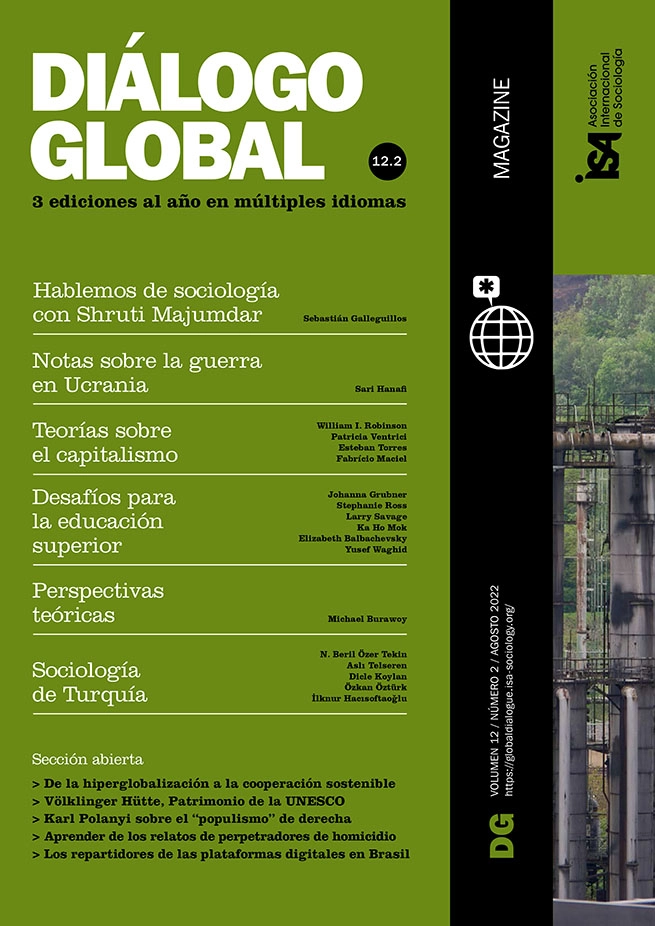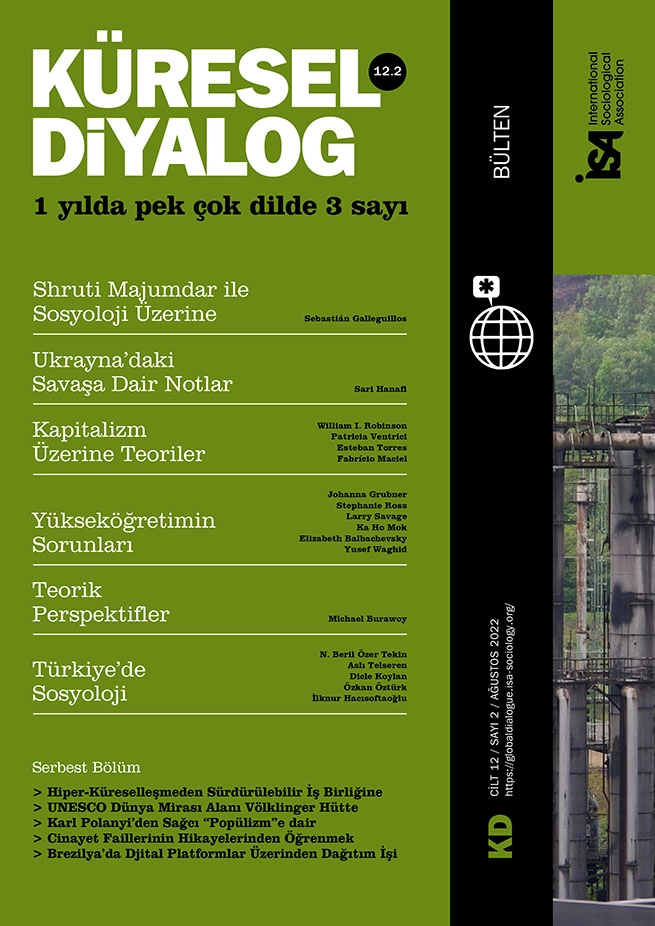Ukraine, Putin’s Imperial Paradigm, and Euro-America
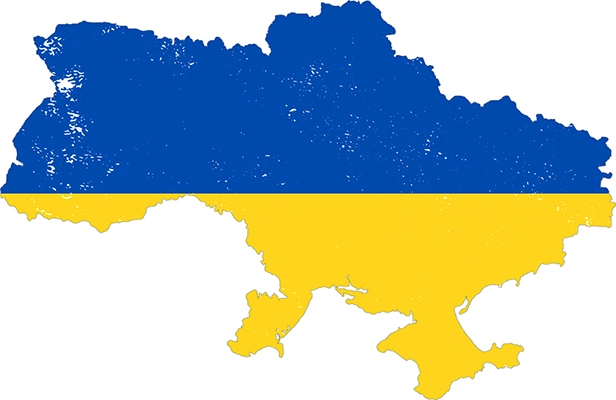
April 25, 2022
The Russian criminal invasion of Ukraine that has rocked the world is not only an isolated war but also an exceptional one. It is exceptional based on its capacity to turn into a third World War and more specifically, in its risk of becoming a nuclear one. The eastward expansion of NATO is a provocation, or at least what the Palestinian philosopher Azmi Bishara (2022) called “determination to not avoid the road to war,” yet it does not at all justify this furious invasion and the unilateral stepping over the sovereignty of a country. The International Sociological Association (ISA) released a statement[1] at the beginning of this war expressing its deep concern about the Russian military offensive in Ukraine. For the ISA, and for me personally, war is never an acceptable solution and is against all the values we uphold. The ISA stands in solidarity with the Ukrainian social scientists and with our colleagues elsewhere, including in the Russian Federation and Belarus, who have raised their voices against this war, and have defended democracy and human rights.[2]
Putin’s imperial paradigm
Putin’s Russia is persistently undermining the liberal democratic ideals that humanity has long been developing. Not only has Putin been in power effectively since 2000, but he has also been actively waging war against any attempt at democratization by other countries (Georgia, Syria, Ukraine, etc.). He has partially imitated some of America’s unilateral displays of power (e.g., the invasion of Iraq), but the difference is that Saddam Hussein’s Iraqi regime was indeed dictatorial. Ukraine is a democratic country, although highly divided over the issue of joining NATO. According to recent surveys, while more than half the population are in favor of joining the EU, only 40 to 50% are in favor of joining NATO (Bishara 2022). This ambivalent position is wise as it takes into account the pathetic “great power nationalism” of Russia, which is based mainly on three vectors: Russian identity forged by the Orthodox church and the Tsars; Slavic ethnicity (thinking Russia, Belorussia, and Ukraine as the same space); and, to a lower degree, Eurasia (necessary for the grandeur of Russia through an alliance with former Asian Soviet Union republics and China). While Marx referred to nineteenth-century Tsarist Russia as the bastion of reaction in Europe, Putin’s populist Russia again plays this pitiful role,[3] despite the economic success of his era. This is a role I witnessed (and lived through) earlier during the Russian (and Iranian) war in Syria: an exercise in “great space” power projection beyond the nation-state and “identitarian democracy” based on a worldview that reflects Carl Schmitt’s categories in Putin’s (domestic and imperial) paradigm (Lewis 2020) and popularized to him by the Russian philosopher Aleksandr Dugin.
Four lessons
In this piece, I share my analysis not only as a sociologist but also as someone who lives in the Middle East, bringing four lessons we may learn from this war.
First, there is the double standard of Euro-American international relations discourse and practice. In the Global South, terms such as resistance, boycott, and solidarity fighters have been banned while these same terms have a positive connotation when describing the war in Ukraine. As the President of the Israeli Sociology Society, Lev Grinberg,[4] bluntly wrote: “how is it possible that Israel has been a military occupier in the Palestinian territories for 55 years, in clear violation of international law, yet no Western countries have ever imposed sanctions against it?” In the same vein, while criminalizing the Palestinian’s Boycott, Divestment, Sanctions (BDS) movement in some Western countries, many European scholars call for a total boycott of Russian scholars, institutionally and individually.
Second, how is it that the brutality of war in other areas of the world did not get the same Euro-American reactions as the war on Ukraine? There are different ways of narrating my life as a Palestinian who grew up in Syria. One of them is to see my life as having been lived through wars in a region with only brief moments of peace: Arab-Israeli wars in 1967 and 1973; Israeli war on the Palestinian territories – the Second Intifada, 2000-2005; Israeli war on Gaza in 2008, 2012, 2014, 2021; Israeli wars in Lebanon in 1982, 2006; Iraqi-Iranian war in 1980-88; invasion of Kuwait, 1991; war on Iraq in 1991, 2003; war on Syria, 2011-present; war in Yemen, 2014-present; and the war in Libya, 2014-2020. These ferocious wars unleashed levels of mass destruction, suffering, displacement, and ultimately death much higher than in Ukraine. The Western powers reacted and continue to react mildly and oftentimes to support the colonial power (Israel) or the dictators (Gulf and Egypt) in the name of stability and for economic reasons.
Third, some postcolonial critiques focusing on historical imperialism or the current Euro-American neocolonialism have been unable to see the effect of other emerging empires and the extent of brutality in conquering spaces of allegiances. Russia, Iran, Israel, Turkey, and the Gulf monarchies are very important empires operating in the Middle East, some of whose military actions have generated colonialism, misery, and authoritarianism. In this regard, Laura Doyle’s concept of “inter-imperiality” is helpful as she invites us to understand empires not only as consecutive but often as they operate in parallel, making the “mutually produced, highly contingent, and interactive politics of contemporaneous imperial histories, with their unanticipated, sometimes ironic effects” (Doyle 2014). Thus, there are not simply ripple effects in these multi-vectored dynamics or rhizomatic empires, but they are often violently interactive, institutionally situated, and strategically pursued.
Fourth, the call for the total boycott in academia of Russians or Belarusians is against the values that academia seeks to promote. I do believe in the moral obligation to carry out an institutional boycott against any institution that has a relationship with colonial or authoritarian powers, but not at the individual level. Engaging with involved individuals is important in order to listen to different approaches to conflicts and promote a state of open, active dialogue. This means it is not enough to simply support those who have liberal democratic ideals but we, in academia, also need to listen attentively to those who refuse to embrace, partially or totally, these ideals and to play a mediating role, bridging positions and promoting an affective, moral, and political strategy. Against a radical critical social theory, I call for a situated critical one that, while criticizing powers, is also able to simultaneously open up a dialogue with the very forces it critiques. Needless to say, academic discourse should be carried out with some rules related to intellectual integrity and social responsibility. This responsibility, which preempts propaganda, incitement, demonizing the culture of others, and hate speech, makes academic freedom more delicate than the simple freedom of expression it is purported to be. The role of academia is to liberate politics from its Schmittian conception of friend and enemy – that where the ultimate degree of association is the willingness to fight and die, together with other members of one’s group; and the utmost degree of dissociation is the willingness to kill others, those being members of a hostile group. I fully agree with the historian Amit Varshizky that if political liberalism wishes to survive, it needs to take seriously the ideas of its adversarial critics and not dismiss them disdainfully. He reminds us what the German philosopher Ernst Cassirer wrote after World War II: “In order to fight an enemy you must know him. That is one of the first principles of a sound strategy. To know him means not only to know his defects and weaknesses; it means to know his strength. All of us have been liable to under-rate this strength… We should carefully study the origin, the structure, the methods and the techniques of the political myths. We should see the adversary face to face in order to know how to combat him.”[5]
Conclusion: enhancing the level of solidarity
Finally, in adamantly confronting social suffering, we must exercise the humane moral reasoning tied to our innate Maussian gift for social love in order to generate different levels of solidarity towards kin, neighbor, nation, and humanity as a whole. While we should all aim to have the greatest form of solidarity, i.e., towards this humanity and to what Jan-Christoph Heilinger (2019) called “cosmopolitan obligations,” we must admit that the European reaction towards the consequences of the war in Ukraine patently demonstrates a level of solidarity that is fueled far more by cultural, Judeo-Christian affinities and ultimately nationalist identities as opposed to cosmopolitan ones. I bring this to the fore in order to nuance some of the criticism that we’ve heard in academic work as well as in the mainstream and social media on the differentiated treatment of refugees, i.e., how Syrian, Afghani, and African refugees have been received compared to Ukrainian ones. One should also acknowledge these different moral reasonings preempt any simplification such as looking at the differential treatment only from a racial point of view, or considering this as a manifestation of pure racism.[6] Having said that, Western scholars should also be prepared to accept cultural/religious affinity among Arabs or Muslims and should not consider this systematically as dangerous sectarian feelings.
[1] https://www.isa-sociology.org/en/about-isa/isa-human-rights-committee/isa-statement-on-the-russian-military-offensive-happening-in-ukraine.
[2] The ISA also added to its website a list of all institutional anti-war statements (from national sociological associations and research committees and other academic associations) including the Ukrainian Sociological Association.
[3] https://litci.org/en/once-again-bastion-of-reaction/.
[4] https://www.972mag.com/ukraine-lebanon-russia-israel/?fbclid=IwAR0Qq6eemWkOmPJPfjzlPOl5VAeOmCppHmYQUKew7RwXHO1vDjZ6LDxttss.
[5] https://www.haaretz.com/world-news/.premium.HIGHLIGHT.MAGAZINE-to-understand-putin-you-first-need-to-get-inside-aleksandr-dugin-s-head-1.10682008.
[6] Of course some of this criticism is justified. See for instance H.A. Hellyer’s article “Coverage of Ukraine has exposed long-standing racist biases in Western media” https://www.washingtonpost.com/opinions/2022/02/28/ukraine-coverage-media-racist-biases/.
References
Bishara, A (2022) “Russia, Ukraine and NATO: Reflections on the Determination to Not Avoid the Road to War.” The Arab Center for Research and Policy Studies.
Doyle, L (2014) “Inter-Imperiality: Dialectics in a Postcolonial World History.” Interventions 16(2): 159–96.
Heilinger, J-C (2019) Cosmopolitan Responsibility: Global Injustice, Relational Equality, and Individual. Berlin; Boston: de Gruyter.
Lewis, DG (2020) Russia’s New Authoritarianism: Putin and the Politics of Order. First edition. Edinburgh: Edinburgh University Press.
Sari Hanafi, American University of Beirut, Lebanon, and President of the International Sociological Association (2018-2023) sh41@aub.edu.lb
First published in Global Express, April 25, 2022.

